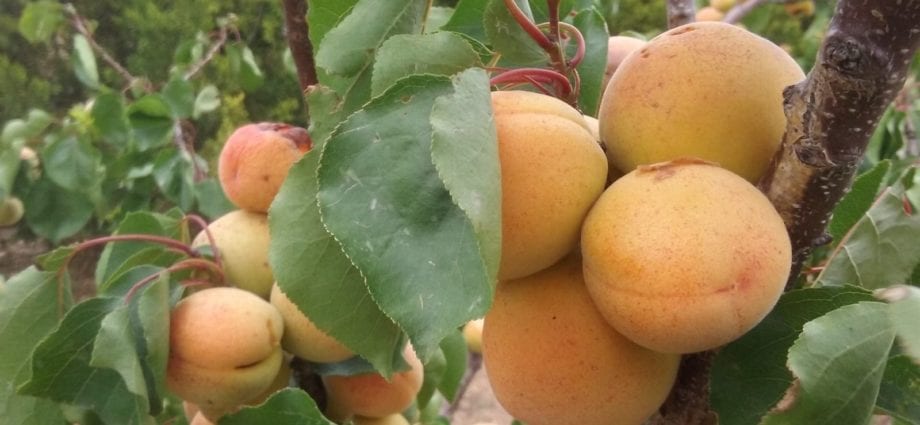Nutritional value and chemical composition.
| Nutrient | Quantity | Norm** | % of the norm in 100 g | % of the norm in 100 kcal | 100% normal |
| Calorie value | 520 kCal | 1684 kCal | 30.9% | 5.9% | 324 g |
| Proteins | 25 g | 76 g | 32.9% | 6.3% | 304 g |
| Fats | 45.4 g | 56 g | 81.1% | 15.6% | 123 g |
| Carbohydrates | 2.8 g | 219 g | 1.3% | 0.3% | 7821 g |
| Water | 5.4 g | 2273 g | 0.2% | 42093 g | |
| Ash | 2.6 g | ~ | |||
| Macronutrients | |||||
| Potassium, K | 802 mg | 2500 mg | 32.1% | 6.2% | 312 g |
| Calcium, Ca | 93 mg | 1000 mg | 9.3% | 1.8% | 1075 g |
| Magnesium, Mg | 196 mg | 400 mg | 49% | 9.4% | 204 g |
| Sodium, Na | 90 mg | 1300 mg | 6.9% | 1.3% | 1444 g |
| Phosphorus, P | 461 mg | 800 mg | 57.6% | 11.1% | 174 g |
| Trace Elements | |||||
| Iron, Fe | 7 mg | 18 mg | 38.9% | 7.5% | 257 g |
| Digestible carbohydrates | |||||
| Mono- and disaccharides (sugars) | 2.8 g | max 100 г | |||
| Essential Amino Acids | 6.121 g | ~ | |||
| Arginine * | 2.304 g | ~ | |||
| valine | 0.885 g | ~ | |||
| Histidine * | 0.546 g | ~ | |||
| Isoleucine | 0.665 g | ~ | |||
| leucine | 1.546 g | ~ | |||
| lysine | 0.665 g | ~ | |||
| methionine | 0.28 g | ~ | |||
| Methionine + Cysteine | 0.58 g | ~ | |||
| threonine | 0.656 g | ~ | |||
| tryptophan | 0.325 g | ~ | |||
| phenylalanine | 1.099 g | ~ | |||
| Phenylalanine + Tyrosine | 1.77 g | ~ | |||
| Replaceable amino acids | 18.053 g | ~ | |||
| alanine | 1.147 g | ~ | |||
| Aspartic acid | 3.121 g | ~ | |||
| glycine | 1.242 g | ~ | |||
| Glutamic acid | 6.384 g | ~ | |||
| Proline | 1.274 g | ~ | |||
| serine | 1.053 g | ~ | |||
| tyrosine | 0.672 g | ~ | |||
| Cysteine | 0.304 g | ~ | |||
| Sterols | |||||
| beta sitosterol | 200 mg | ~ | |||
| Saturated fatty acids | |||||
| Saturated fatty acids | 2.88 g | max 18.7 г | |||
| 16: 0 Palmitic | 2.34 g | ~ | |||
| 18: 0 Stearin | 0.54 g | ~ | |||
| Monounsaturated fatty acids | 28.98 g | min 16.8 г | 172.5% | 33.2% | |
| 16: 1 Palmitoleic | 0.4 g | ~ | |||
| 18: 1 Olein (omega-9) | 28.66 g | ~ | |||
| Polyunsaturated fatty acids | 10.93 g | from 11.2 to 20.6 | 97.6% | 18.8% | |
| 18: 2 Linoleic | 10.93 g | ~ | |||
| Omega-6 fatty acids | 10.93 g | from 4.7 to 16.8 | 100% | 19.2% |
The energy value is 520 kcal.
- potassium is the main intracellular ion that takes part in the regulation of water, acid and electrolyte balance, participates in the processes of nerve impulses, pressure regulation.
- Magnesium participates in energy metabolism, synthesis of proteins, nucleic acids, has a stabilizing effect on membranes, is necessary to maintain homeostasis of calcium, potassium and sodium. Lack of magnesium leads to hypomagnesemia, an increased risk of developing hypertension, heart disease.
- Phosphorus takes part in many physiological processes, including energy metabolism, regulates acid-base balance, is a part of phospholipids, nucleotides and nucleic acids, is necessary for the mineralization of bones and teeth. Deficiency leads to anorexia, anemia, rickets.
- Iron is a part of proteins of various functions, including enzymes. Participates in the transport of electrons, oxygen, ensures the course of redox reactions and activation of peroxidation. Insufficient consumption leads to hypochromic anemia, myoglobin-deficient atony of skeletal muscles, increased fatigue, myocardiopathy, atrophic gastritis.
Energy value, or calorie content Is the amount of energy released in the human body from food during digestion. The energy value of a product is measured in kilo-calories (kcal) or kilo-joules (kJ) per 100 grams. product. The kilocalorie used to measure the energy value of food is also called the “food calorie,” so the kilo prefix is often omitted when specifying calories in (kilo) calories. You can see detailed energy tables for Russian products.
The nutritional value – the content of carbohydrates, fats and proteins in the product.
Nutritional value of a food product – a set of properties of a food product, in the presence of which the physiological needs of a person for the necessary substances and energy are satisfied.
Vitamins, organic substances required in small quantities in the diet of both humans and most vertebrates. Vitamins are usually synthesized by plants rather than animals. The daily human need for vitamins is only a few milligrams or micrograms. Unlike inorganic substances, vitamins are destroyed by strong heating. Many vitamins are unstable and “lost” during cooking or food processing.










